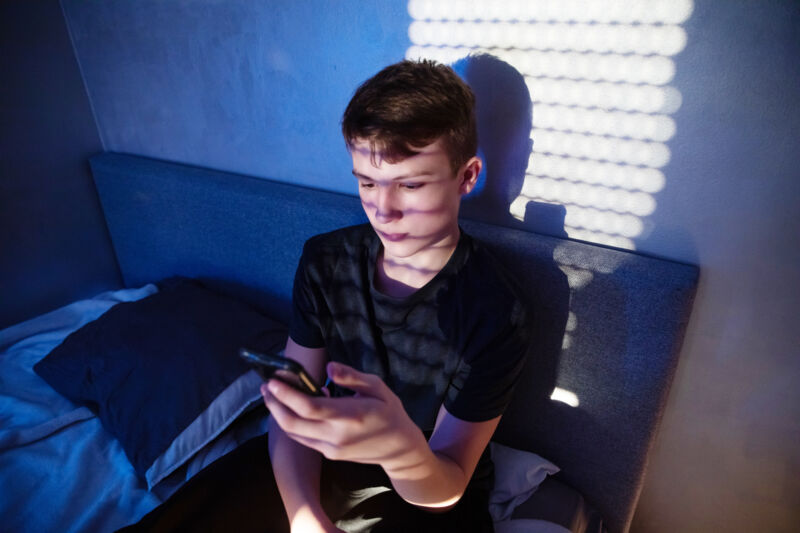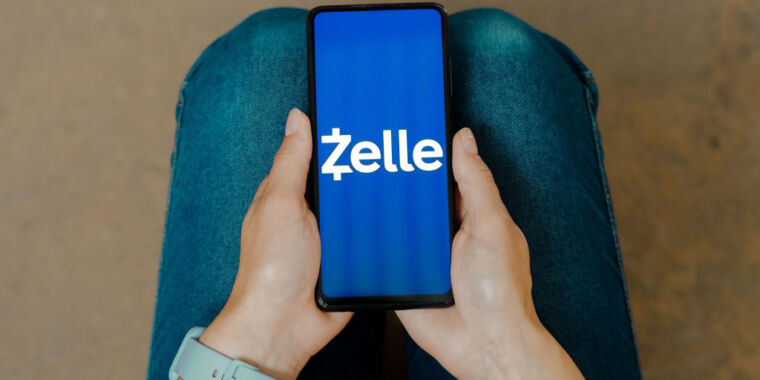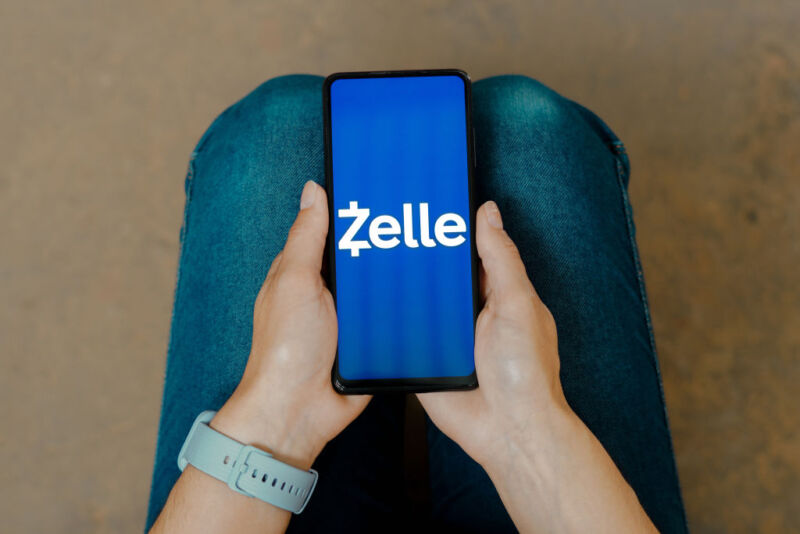US woman arrested, accused of targeting young boys in $1.7M sextortion scheme
Preventing leaks —
FBI has warned of significant spike in teen sextortion in 2024.

A 28-year-old Delaware woman, Hadja Kone, was arrested after cops linked her to an international sextortion scheme targeting thousands of victims—mostly young men and including some minors, the US Department of Justice announced Friday.
Citing a recently unsealed indictment, the DOJ alleged that Kone and co-conspirators “operated an international, financially motivated sextortion and money laundering scheme in which the conspirators engaged in cyberstalking, interstate threats, money laundering, and wire fraud.”
Through the scheme, conspirators allegedly sought to extort about $6 million from “thousands of potential victims,” the DOJ said, and ultimately successfully extorted approximately $1.7 million.
Young men from the United States, Canada, and the United Kingdom fell for the scheme, the DOJ said. They were allegedly targeted by scammers posing as “young, attractive females online,” who initiated conversations by offering to send sexual photographs or video recordings, then invited victims to “web cam” or “live video chat” sessions.
“Unbeknownst to the victims, during the web cam/live video chats,” the DOJ said, the scammers would “surreptitiously” record the victims “as they exposed their genitals and/or engaged in sexual activity.” The scammers then threatened to publish the footage online or else share the footage with “the victims’ friends, family members, significant others, employers, and co-workers,” unless payments were sent, usually via Cash App or Apple Pay.
Much of these funds were allegedly transferred overseas to Kone’s accused co-conspirators, including 22-year-old Siaka Ouattara of the West African country the Ivory Coast. Ouattara was arrested by Ivorian authorities in February, the DOJ said.
“If convicted, Kone and Ouattara each face a maximum penalty of 20 years in prison for each conspiracy count and money laundering count, and a maximum penalty of 20 years in prison for each wire fraud count,” the DOJ said.
The FBI has said that it has been cracking down on sextortion after “a huge increase in the number of cases involving children and teens being threatened and coerced into sending explicit images online.” In 2024, the FBI announced a string of arrests, but none of the schemes so far have been as vast or far-reaching as the scheme that Kone allegedly helped operate.
In January, the FBI issued a warning about the “growing threat” to minors, warning parents that victims are “typically males between the ages of 14 to 17, but any child can become a victim.” Young victims are at risk of self-harm or suicide, the FBI said.
“From October 2021 to March 2023, the FBI and Homeland Security Investigations received over 13,000 reports of online financial sextortion of minors,” the FBI’s announcement said. “The sextortion involved at least 12,600 victims—primarily boys—and led to at least 20 suicides.”
For years, reports have shown that payment apps have been used in sextortion schemes with seemingly little intervention. When it comes to protecting minors, sextortion protections seem sparse, as neither Apple Pay nor Cash App appear to have any specific policies to combat the issue. However, both apps only allow minors over 13 to create accounts with authorized adult supervisors.
Apple and Cash App did not immediately respond to Ars’ request to comment.
Instagram, Snapchat add sextortion protections
Some social media platforms are responding to the spike in sextortion targeting minors.
Last year, Snapchat released a report finding that nearly two-thirds of more than 6,000 teens and young adults in six countries said that “they or their friends have been targeted in online ‘sextortion’ schemes” across many popular social media platforms. As a result of that report and prior research, Snapchat began allowing users to report sextortion specifically.
“Under the reporting menu for ‘Nudity or sexual content,’ a Snapchatter’s first option is to click, ‘They leaked/are threatening to leak my nudes,'” the report said.
Additionally, the DOJ’s announcement of Kone’s arrest came one day after Instagram confirmed that it was “testing new features to help protect young people from sextortion and intimate image abuse, and to make it more difficult for potential scammers and criminals to find and interact with teens.”
One feature will by default blur out sexual images shared over direct message, which Instagram said would protect minors from “scammers who may send nude images to trick people into sending their own images in return.” Instagram will also provide safety tips to anyone receiving a sexual image over DM, “encouraging them to report any threats to share their private images and reminding them that they can say no to anything that makes them feel uncomfortable.”
Perhaps more impactful, Instagram claimed that it was “developing technology to help identify where accounts may potentially be engaging in sextortion scams, based on a range of signals that could indicate sextortion behavior.” Having better signals helps Instagram to make it “harder for potential sextortion accounts to message or interact with people,” the platform said, by hiding those requests. Instagram also by default blocks adults from messaging users under 16 in some countries and under 18 in others.
Instagram said that other tech companies have also started “sharing more signals about sextortion accounts” through Lantern, a program that Meta helped to found with the Tech Coalition to prevent child sexual exploitation. Snapchat also participates in the cross-platform research.
According to the special agent in charge of the FBI’s Norfolk field office, Brian Dugan, “one of the best lines of defense to stopping a crime like this is to educate our most vulnerable on common warning signs, as well as empowering them to come forward if they are ever victimized.”
Both Instagram and Snapchat said they were also increasing sextortion resources available to educate young users.
“We know that sextortion is a risk teens and adults face across a range of platforms, and have developed tools and resources to help combat it,” Snap’s spokesperson told Ars. “We have extra safeguards for teens to protect against unwanted contact, and don’t offer public friend lists, which we know can be used to extort people. We also want to help young people learn the signs of this type of crime, and recently launched in-app resources to raise awareness of how to spot and report it.”
US woman arrested, accused of targeting young boys in $1.7M sextortion scheme Read More »


